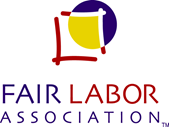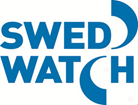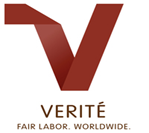NGOs & CIVIL SOCIETY | ||
Name of Resource | A Guide to Traceability: A Practical Approach to Advance Sustainability in Global Supply Chains |
Type | Report |
Country / jurisdiction | Global |
Organization | Business for Social Responsibility |
Date of publishing | 9 April 2014 |
Description | This guide provides an overview of the importance of traceability for sustainability purposes, outlines the global opportunities and challenges it represents, and summarizes practical steps for implementing traceability programme within companies. Research for this guide revealed that traceability is a tremendously impactful tool for advancing sustainability objectives, but it still has a long way to go before it is an integral part of sustainable supply chain management and used widely by companies. At present, only a very small percentage of commodities are traceable on sustainability attributes. |
Availability |
Name of Resource | Addressing Risks of Forced Labor in Supply Chains: Protecting Workers from Unfair Restrictions on their Freedoms at Work |
Type | Practical/implementation tool |
Country / jurisdiction | Global |
Organization | Fair Labor Association |
Date of publishing | 17 August 2017 |
Description | The brief focuses on best practices for identifying and eradicating forced labour at the supplier level. It explains the indicators of forced labour as incorporated into the Fair Labor Association (FLA) code, provides examples of risks and violations reported by the FLA’s on-the-ground assessors, and offers recommendations of proactive and cooperative steps that brands can take to ensure that suppliers do not engage in or tolerate trafficking and forced labour. |
Availability | ENG: http://www.fairlabor.org/report/addressing-risks-forced-labor-supply-chains |
Name of Resource | Agents for change. How public procurers can influence labour conditions in global supply chains. Case studies from Brazil, Pakistan and Thailand |
Type | Report/analysis |
Country / jurisdiction | Global |
Organization | SwedWatch |
Date of publishing | 15 November 2016 |
Description | The report focuses on the social aspects of supply chains and examines how contracting authorities in the EU can use social criteria to improve labour conditions in countries where poor labour standards are rife. The report draws on experiences and lessons learned from the Swedish public market in the hope that they may prove useful to policy-makers and contracting authorities in other countries. The report also aims to provide Sweden’s own purchasing authorities with an overview of risks and opportunities. Case studies presented review labour conditions in: 1) Pakistani factories that produce surgical instruments; 2) Thai poultry factories; and 3) Brazilian coffee farms, and illustrate how Swedish contracting authorities have used social criteria (or not). |
Availability | ENG: http://www.swedwatch.org/wp-content/uploads/2016/11/82_Agents-for-Change-enkelsidor.pdf |
Name of Resource | An Ethical Framework for Cross-Border Labor Recruitment: An Industry/Stakeholder Collaboration to Reduce the Risks of Forced Labor and Human Trafficking |
Type | Report / analysis |
Country / jurisdiction | Global |
Organization | Verité, Manpower Group |
Date of publishing | 2012 |
Description | The Ethical Framework for Cross Border Labor Recruitment offers a set of specific operational practices (“Standards of Ethical Practice”) for recruitment firms that operate across borders. These practices are reinforced by a Verification and Certification system to document compliance and provide essential information to third parties and potential business partners. The framework, including the verification process, is designed as a remedy to the current institutional fragmentation of the cross-border recruitment marketplace, where employers, recruiters, and their local and regional subcontractors may operate in different jurisdictions with limited accountability to one another, to regulators, or to workers. The framework creates a set of credentials and information for third parties that will help eliminate unscrupulous brokers. |
Availability | ENG: https://www.verite.org/wp-content/uploads/2016/12/ethical_framework_paper.pdf |




